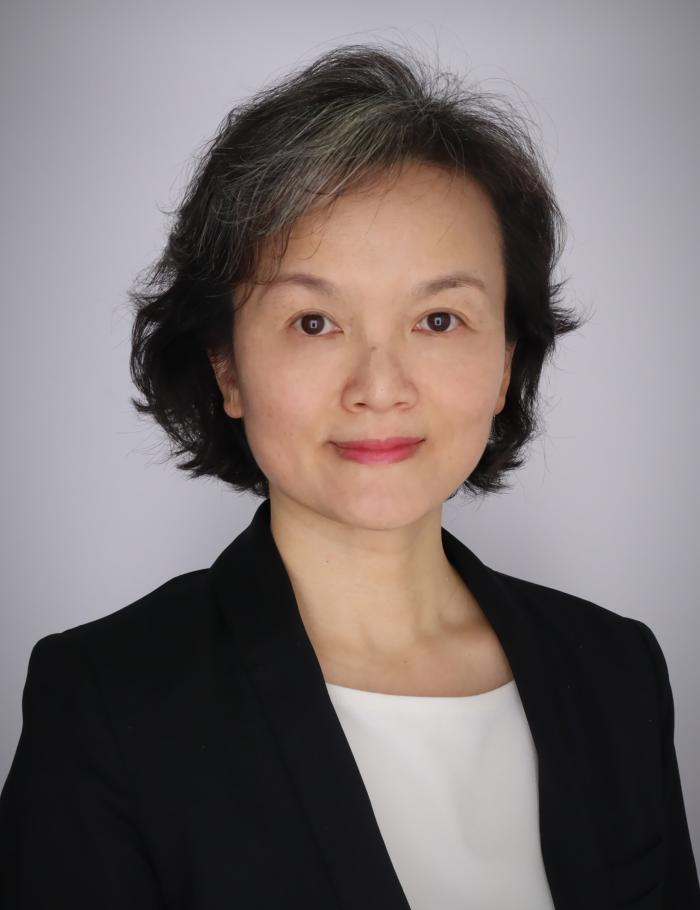Hang Zhang

Hang Zhang
Associate Professor of Chinese Language and Linguistics; Chinese Program Coordinator
Core Faculty
Contact:
Dr. Hang Zhang’s research interests include second language phonology and Chinese language pedagogy. She is especially interested in investigating interlanguage tonal grammars from the perspective of linguistic universals. Her current research focuses on the second language acquisition of Mandarin Chinese sound system by different types of non-tonal language speaking learners. In addition to research, Dr. Hang Zhang also enjoys teaching Chinese as a foreign language and Chinese linguistics. Prior to joining the faculty of George Washington University, she had taught a variety of Chinese courses at Zhejiang University in China, Duke University and the University of North Carolina at Chapel Hill.
Second language acquisition; Tones; Chinese linguistics; Chinese language pedagogy.
Books
- 2022 Introducing Chinese Linguistics: A Handbook for Chinese Language Teachers and Learners, (Co-authored with Lan Zhang) John Benjamins. [Read a review]
- 2018 Second Language Acquisition of Chinese Tones—Beyond First-Language Transfer, Brill. ISBN 978-90-04-36479-0 (e-book); ISBN 978-90-04-30597-7 (hardback). [Read a review]
- 2014 Introduction to Chinese Linguistics《现代语言学导论》, Co-authored with Chi, Chang-Hai, et al. (Zhejiang University Press, 2004, 2007, 2012, 2014). 4th edition, ISBN 9787308137287.
- 2009 Difficult Vocabulary Teaching-Handbook for Teaching Chinese as a Second Language 《实用对外汉语重点难点词语教学词典》, Co-authored with Zhu, Li-Yun, et al. (Beijing University Press, 2009). ISBN 9787301145883. Difficult Vocabulary Teaching-Handbook for Teaching Chinese as a Second Language.
Journal articles and book chapters
- Zhang, H. (2022) Acquisition and Pedagogical Issues of the Third Tone, International Chinese Language Education, Vol. 7 (3), p.53-61.
- Zhang, H. (2021). From individual tones to connected speech: The case of Tone 3. In Zhang, Y. and X. Gao (eds.) Frontiers of L2 Chinese Education: A Global Perspective, p.30-50, Routledge.
- Zhang, H. and Y. Xie (2020). “Coarticulation Effects of Contour Tones in Second Language" Chinese as Second Language Research. Volume 9, Issue 1, Page 1-30
- Zhang, H. (2019 b). "The Positional Effects of Contour Tones in Second Language Chinese", in Zhang, H. and Y. Qian (eds.) Prosodic Studies: Challenges and Prospects. Page. 345-368, Abingdon and New York: Routledge.
- Zhang, H. (2019 a). “Teaching Chinese Tones,” In Chris Shei, Monica E. McLellan Zikpi, and Der-lin Chao (Eds). The Routledge Handbook of Chinese Language Teaching, Page.166-179. Abingdon and New York: Routledge.
- Zhang, H. (2018 b). “An Inter-tonal Effect in Second Language Chinese Contour Tones,” in Wen, S. and Jiang, X. (eds.) Empirical Studies on Learning and Teaching Chinese as a Second Language. p.129-147. Routledge.
- Zhang, H. (2018a). “Current Trends in Research of Chinese Sound Acquisition.” in Ke, C-R. (ed.) The Routledge Handbook of Chinese Second Language Acquisition, 217-233, New York: Routledge.
- Zhang, H. (2017b). “Asymmetries in Second Language Acquisition of Chinese Contour Tones.” Journal of International Chinese Teaching,2017. No. 4 (Serial No.16) 16-21.
- Zhang, H. (2017a). “The Effects of Tonal Markedness in Second Language Chinese Tones,” in Kecskes, I. and Sun, C-F. (eds.) Key Issues in Chinese as a Second Language, pp. 57-80, New York: Routledge.
- Zhang, H. (2016c). "Focal Prominence Marking in Second Language Chinese Tones," in Tao, H. (ed.) Integrating Chinese Linguistics Research and Language Learning, pp.195-214, John Benjamins Publishing Company.
- Zhang, H. (2016b). “Dissimilation in the Second Language Acquisition of Chinese Tones,” Second Language Research, Vol. 32(3) 427 –451, DOI: 10.1177/0267658316644293
- Zhang, H. (2016a). “The effect of theoretical assumptions on pedagogical methods: A case study of second language Chinese tones.” International Journal of Applied Linguistics, Vol. 27, No.2, pp. 363-382. DOI: 10.1111/ijal.12132
- Zhang, H. (2015). "Positional Effects in Second Language Chinese Tones," Journal of Chinese Language Teaching, Vol.12, No. 2, pp.1-30.
- Zhang, H. (2014b). “The Third Tone: Allophones, Sandhi Rules and the Pedagogy.”Journal of Chinese Language Teachers Association, February 2014, Volume 49:1, pp.117-145.
- Zhang, H. (2014a). “An OT Account of the Second Language Acquisition of Mandarin Tone Pairs,” in Cardoso, W. (ed.) The Concordia University Working Papers in Applied Linguistics (COPAL). Volume 5, pp. 783-797.
- Zhang, H. (2010). “Phonological Universals and Tone Acquisition.” Journal of Chinese Language Teachers Association. Vol. 45. No: 1, Page: 39-65.
- Zhang, H. (2003). “The Creation of a Model for the First Chinese Class.” Language Teaching and Linguistic Studies《语言教学与研究》, 2003:5, pp: 70-74.
MA and PhD in Linguistics, University of North Carolina at Chapel Hill

